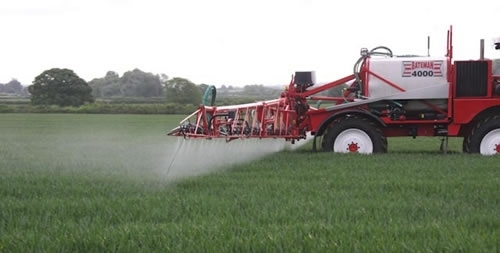
The government has unveiled plans to secure continued access to essential pesticides for the country's farmers and growers. These plans, formulated in response to feedback from the farming industry, aim to provide stability, reduce input costs, and support resilient and profitable food production.
Ensuring Access to Treated Seeds and Cost-effective Pesticides
Under these plans, farmers and growers in Great Britain will have the ability to buy and use seeds treated with EU-approved pesticides. Furthermore, more cost-effective pesticides identical to those authorized in Great Britain will remain importable. This initiative guarantees that farmers have access to crucial resources for their operations.
Certainty for Farmers and Improved Availability
These measures not only offer certainty to farmers regarding the seeds and plant protection products they can use in upcoming growing seasons but also seek to enhance the availability and affordability of pesticides. Treated seeds are of particular significance to both arable and horticulture sectors, with a special emphasis on maize, a crop essential to dairy farmers and energy production.
Parliamentary Sharing and Timeline for Implementation
The government presented these plans to Parliament, and once agreed, they will be in effect by the end of the year. This ensures that there will be no disruption in existing treated seed schemes, which were initially set to expire on December 31. As a result, farmers can purchase and use treated seeds for the upcoming growing season without interruption.
Transitioning and Adaptation for Agriculture
These measures not only provide the agricultural industry and farming communities with valuable transition time but also reflect the government's commitment to supporting farmers in delivering affordable and high-quality food to consumers.
Extending Access and Reducing Costs
Under the current timeline, access to these products was at risk of being lost by the end of the year. However, these temporary measures will grant farmers and growers in Great Britain the following:
- The ability to continue using seeds treated with plant protection products authorized for use in the EU for an additional 3.5 years, extending up to July 1, 2027.
- Reinstating trade permits for the import of plant protection products identical to those authorized in Great Britain for a maximum of two years.
This extension of access aims to improve availability and reduce costs while offering certainty for the agricultural sector over the coming years.
Supporting Manufacturers and Farmers for Long-term Sustainability
In the long term, these changes will provide manufacturers with the necessary time to submit full applications for Great Britain authorizations for seed treatments. This step ensures they can continue to benefit from the UK market, taking into account the needs and demands of farmers. The regulator will continue to collaborate with the industry to facilitate the submission of successful applications.
Encouraging Sustainable Farming Practices
The government is also encouraging farmers to develop and adapt their practices, including through integrated pest management approaches. Such approaches can enhance resilience by diversifying crop protection techniques. The government is already supporting farmers in this regard, including through initiatives such as the Sustainable Farming Incentive scheme's integrated pest management Standard, which includes payments for conducting assessments and producing integrated pest management plans.
Get the Latest Farming News & Advice
Stay updated on the latest farming news, advice and research.
*You may change your mind any time. For more information, see our Privacy Policy.